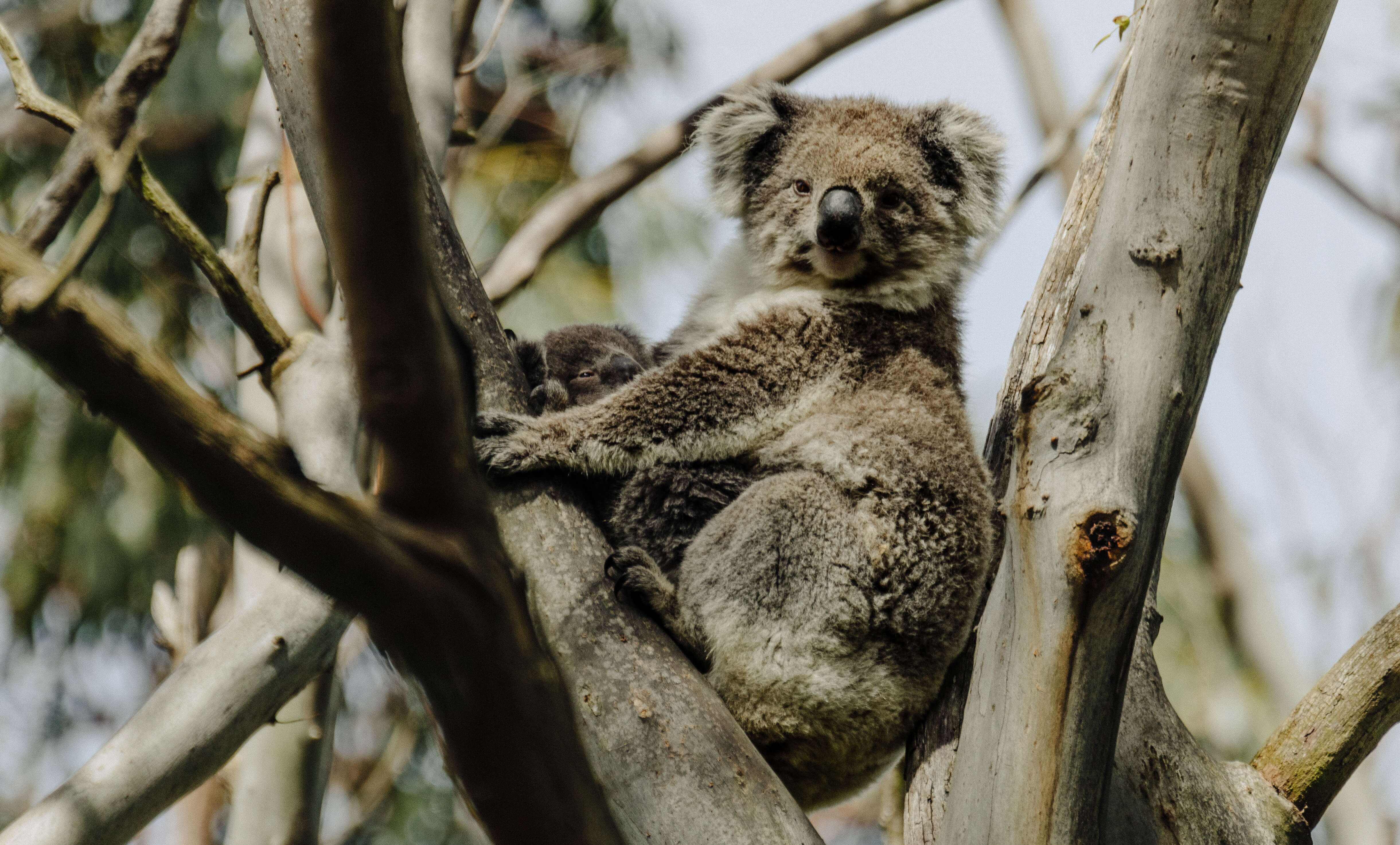01 December 2020
The AdaptNSW 2020 webinar series is presented by the NSW Department of Planning, Industry & Environment and our partners, to showcase the leading work on climate change adaptation being delivered across New South Wales.
The COVID-19 restrictions led to us running the AdaptNSW Forum as an online webinar series in 2020. This allowed us to continue to bring together like-minded people from across NSW to share and discuss the practical actions being taken to build resilience to climate change in NSW.
Access the webinar resources to learn how Aboriginal cultural practices are teaching us about caring for country under climate change, how complementary net zero emissions and climate adaptation action can benefit communities, industry and government, motivators for addressing climate risk in the board room, how climate challenges are affecting our health and wellbeing, and approaches to managing climate impacts to our natural ecosystems.
Webinar 5 - Adaptation of NSW's natural environment
The New South Wales environment is already experiencing major climate change impacts from drought, fire and flood. The urgency of response requires innovative and widescale action. In this session hear about the latest adaptation techniques being applied by government, communities and researchers to protect our environment.
Webinar resources
Agenda
10.00am Welcome & Acknowledgement of Country: Dr Joanne Wilson - Chairperson, Senior Project Officer – Cultural and Ecosystem Adaptation, NSW Department of Planning, Industry and Environment
10.05 am Opening Address: The Hon. Matt Kean, NSW Minister for Energy and Environment
10.10 am Overview of NSW Government Action: Dr Stephen Bygrave, Director, Climate Resilience and Net Zero Emissions branch, NSW Department of Planning, Industry and Environment
10.15 am Presentation 1 - Climate change adaptation - protecting the Gondwana World Heritage rainforests: Polly Mitchell, Senior Team Leader, Cultural & Ecosystem-based Adaptation, NSW Department of Planning, Industry and Environment
10.35 am Presentation 2 - Trialling climate ready revegetation to preserve koala habitat in the Richmond Valley: Nola Hancock, Post-doctoral Researcher, Macquarie University and Emma Stone, Coordinator, Richmond Valley Landcare
10.55 am Presentation 3 - Managing systems in the margins of ‘Extreme’: Paula D’Santos Senior Team Leader, Environmental Water, Biodiversity Conservation, NSW Department of Planning, Industry and Environment and Debbie Love, Senior Team Leader, Environmental Water and Floodplains Team, NSW Department of Planning, Industry and Environment
11.15 am Q&A with Slido: Audience Q&A using Slido.
11.25 am Close and thank you: Joanne Wilson - Chairperson
Speakers
Matt Kean is the NSW Minister for Energy and Environment, a portfolio that was first combined after the Berejiklian Government’s re-election in March 2019.
Minister Kean was elected as the member for Hornsby in 2011 at the age of 29. Prior to entering politics, the Minister, a chartered accountant, worked at Price Waterhouse Coopers. In January 2017, Mr Kean was elevated to cabinet as the Minister for Innovation and Better Regulation, where he led the nation on consumer protection reforms.
In his role as Energy and Environment Minister, Mr Kean released the State’s first electricity strategy to improve the reliability, affordability and sustainability of the State’s electricity system. He also negotiated an energy and emissions deal between NSW and the Commonwealth which is the largest single financial commitment to state-based emissions reduction in Australia’s history.
The Minister is a strong advocate for a science and economics led approach to climate change. Mr Kean has called out the link between climate change and this summer’s unprecedented bushfire season. He sees reducing our emissions as not only necessary to protect our environment but key to our future prosperity.
Joanne is an experienced conservation scientist and manager with over 20 years’ experience in diverse roles across state governments, industry and non-government organisations. She has a background in marine and coastal ecosystems, protected area management and monitoring and evaluation and spent five years in Indonesia leading the coral reef science program for The Nature Conservancy. She joined EES in 2014 as lead for National and International partnerships for NPWS and is currently working with the Cultural and Ecosystem Adaptation team.
Polly Mitchell is a Senior Team Leader in Cultural and Ecosystem Adaptation in the Office of Environment and Heritage. Polly completed her Bachelor of Science in Biodiversity and Conservation and Master of Research at Macquarie University and has 15 years of experience in: conservation research in Australia and Madagascar; strategic planning; threatened species management; climate change communications and research translation; and ecological and cultural climate change adaptation planning and operations. Polly now leads a team dedicated to identifying climate change adaptation solutions for the protection of our biodiversity and culture. Polly is passionate about protecting our beautiful world and finding adaptation solutions to address climate change. She also really loves snails.
Email address: [email protected].au
Facebook: @BRRVLN
Emma has been involved with Landcare as a volunteer in Northern NSW since 1999 and joined BRRVLN as the Landcare Coordinator in 2016. Her passions and project activity stretch across the broad scope of Landcare including projects focused on biodiversity, threatened species management, water quality, sustainable agriculture, environmental education in schools and resilient and connected rural communities. Emma is most inspired to help other Landcare groups to access tools, knowledge and resources to enable their visions to become a reality.
Paula D’Santos has been working as an environmental water manager for the past 19 years. She currently works for NSW Department of Planning, Industry and Environment as a Senior Team Leader for the South-west Environmental Water and Floodplain unit which is responsible for environmental water management across south- western NSW. Her career in environmental water management started with the NSW Murray Wetlands Working Group and was part of the 2007 National Thiess Riverprize winning project team. Paula was one of the first managers to deliver environmental water to private wetlands using portable irrigation infrastructure, identify the significance of acid sulphate soil issues in an inland wetland system and has been involved in numerous wetland / environmental watering projects across the NSW southern connected basin. Paula’s interest lies in intervalley-scale flows, moving towards true basin-scale connectivity and developing partnerships with local communities. Paula is based in Buronga.
Email address: [email protected]
Dr. Nola Hancock is a post-doctoral researcher at Macquarie University, Sydney. Her PhD was on the role of provenance in restoration ecology under climate change, completed in 2012. Since then, she has worked at Macquarie University, on many projects but particularly in the Biodiversity Node of the NSW Adaptation Research Hub working on a diverse range of projects (climate-ready revegetation workshops, weed futures, threatened species, and assisted colonization). Nola’s research interests are in climate change adaptation at the broad level of biodiversity but more specifically in the practice of revegetation. In a past life, Nola has worked as a bush regenerator, Bushcare supervisor, and local government bushland officer.
Debbie Love started working in the field of river management in 1992. Starting off in the field of water quality, it was in 1996 she managed her first environmental release from Windamere Dam on the Cudgegong River in Central West NSW. Debbie is currently the Senior Team Leader of the Environmental Water and Floodplains Team in the north west region for DPIE. Prior to that role Debbie was the environmental water manager for the iconic Macquarie Marshes through the second half of the Millenium drought and throughout subsequent record flooding. With a shift in focus from valley-scale to basin-scale management resulting from the Commonwealth Murray-Darling Basin the challenge continues to grow, with rising community expectations amid climate extremes, building robust short and longer-term climate considerations into decision making is more critical than ever.
Stephen is Director Climate Resilience and Net Zero Emissions in the NSW Department of Planning, Industry and Environment.
Dr Stephen Bygrave has worked on climate change and environment issues at the international, national and local levels for over 25 years across government, academia, the private and not for profit sectors. Stephen spent three years as CEO of national think tank Beyond Zero Emissions and two years at the Organisation for Economic Cooperation and Development (OECD) and International Energy Agency (IEA) in Paris.
Stephen has spent more than ten years with the Senior Executive Service in various government agencies at the state and federal level including the Department of Prime Minister and Cabinet, Department of Climate Change, Department of Environment and Heritage, Department of Agriculture, as well as Executive Director Climate Change and Sustainability in the ACT Government and Director Climate Resilience and Net Zero Emissions in the NSW Government.
Stephen has worked on a number of significant environmental reforms including development of the carbon pricing mechanism (2007-12), the national renewable energy target (1997-2020), the 100% renewables strategy in ACT Government and net zero emissions strategies in NSW and ACT Governments. He has been Adjunct Professor at UNSW and UQ and has a PhD in Resource and Environmental Management from the Australian National University, focused on village scale renewable energy projects in Fiji, Kiribati and Solomon Islands.
Related events

AdaptNSW Forum 2025 will be held Tuesday 25 and Wednesday 26 November at the Roundhouse in Sydney.

AdaptNSW Forum 2024 was held 29 - 30 Oct 2024 at Roundhouse, UNSW

